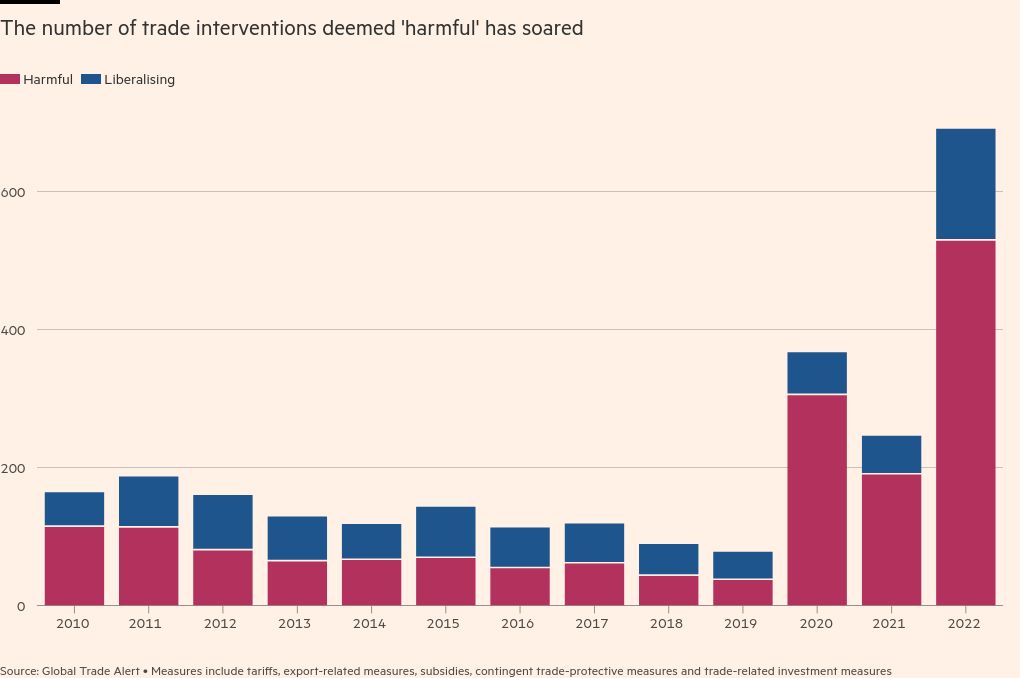
This article is an on-site version of our FirstFT newsletter. Subscribers can sign up to our Asia, Europe/Africa or Americas edition to receive the newsletter every weekday. Explore all of our newsletters here
Today’s agenda: FBI probes China-backed VC fund; VW chief under pressure; Commerzbank’s new CEO; Uber vs Amazon; and the FT’s new US Election Game
We start with Israel’s latest air strike on Lebanon, which Hizbollah has confirmed killed a top commander, Ibrahim Qobeissi. Lebanese authorities said six people died and 15 were also injured in the attack which struck an apartment building in Ghobeiry, a densely populated southern suburb of Beirut where the militant group has a dominant presence.
Who was Qobeissi? The Israel Defense Forces has named him as the head of Hizbollah’s missiles and rockets force, and said he had planned and executed “numerous terror attacks against Israeli civilians and soldiers” since joining the Iranian-backed movement in the 1980s. It also said Qobeissi had “close ties” to senior Hizbollah military leaders.
International reaction: World leaders at the UN General Assembly this week, including US President Joe Biden, have called for a halt to hostilities and warned the region was on the brink of an all-out war. Lebanon’s foreign minister yesterday said the US remained “the only country that can really make a difference”. Several airlines have suspended flights to Beirut and Tel Aviv, while the US and UK have urged its citizens to leave Lebanon. Read the full story.
More than 550 people have been killed and nearly 2,000 wounded since Israel began its intense bombardment of Lebanon, which it has said it plans to continue. We have more insight into the IDF’s “Northern Arrows” operation:
-
Lessons from 2006: The stalemate against Hizbollah 18 years ago resulted in the Israeli military developing its “victory doctrine”, centred on a bank of thousands of vetted targets carefully built using deep intelligence.
-
‘Rope-a-dope’ tactics: Benjamin Netanyahu’s dramatic escalation in Lebanon shows how Israel’s prime minister has shifted goalposts and evaded Joe Biden’s attempts to constrain him for nearly a year.
Here’s what else I’m keeping tabs on today:
-
Economic data: The OECD releases its interim economic outlook report. France has consumer confidence data while the US publishes home sales figures.
-
UN General Assembly: Sir Keir Starmer will vow to “recommit” Britain to internationalism as the prime minister seeks meetings with US presidential hopefuls Kamala Harris and Donald Trump. G20 foreign ministers will also meet in New York.
-
Companies: CEO Mark Zuckerberg is set to speak at Meta’s developer conference on virtual reality. Micron Technology reports results.
Thank you for reading FirstFT. What do you think of the new format for the top story of the day? Let me know at [email protected], or simply hit “Reply”. — Tee
Five more top stories
1. Exclusive: The FBI is investigating whether a US venture capital fund backed by Chinese money allowed Beijing to obtain trade secrets. California-based Hone Capital, which launched in 2015, invested in 360 start-ups in less than three years, including driverless-car maker Cruise and payments group Stripe. Tabby Kinder has more from San Francisco.
2. Oliver Blume is under pressure to give up his dual role as CEO of Porsche and parent company Volkswagen as Europe’s largest carmaker confronts its biggest crisis in decades. Pressure from investors has increased as Blume faces a battle with VW’s works council over plans to cut thousands of jobs and close German factories. Here’s what shareholders are saying.
-
Automotive sector: The “Green Deal” EU ban on the sale of new combustion engine cars after 2035 has created a “grave crisis” for European carmakers, Italy’s industry minister said.
3. Commerzbank’s new chief executive is expected to fight a possible takeover by Italy’s UniCredit after her appointment was announced yesterday. Bettina Orlopp, currently chief financial officer, will succeed CEO Manfred Knof “in the near future”, the German bank said. Here’s why she is unlikely to support a tie-up.
4. Exclusive: The “Can of Ham” skyscraper in the City of London has been put up for sale for £322mn by its owner Nuveen, the asset management arm of US retirement provider TIAA. The building at 70 St Mary Axe, named because of its distinctive rounded shape, is a new test for the top end of the UK capital’s office market after a long slump in flagship sales.
5. Caroline Ellison has been sentenced to two years in prison for her role in the FTX fraud. A New York judge said Ellison, who ran FTX-linked Alameda Research, had been “exploited” by the crypto exchange’s founder Sam Bankman-Fried but added that her early co-operation with prosecutors could not be a “get out of jail free card”.
The Big Read

In the years since its founding in 2009, Uber instigated a transport revolution, spread its disruptive business model to a range of sectors and became one of the world’s most valuable private tech companies. Seven months ago, it reported its first operating profit. On top of ride-sharing and takeaways, Uber’s couriers now deliver goods for retailers, putting it in ever more direct competition with Amazon. Is it trying to do too much?
We’re also reading . . .
-
🕹️ The Election Game: Can you mastermind a US presidential campaign? Compete against other readers in our latest game.
-
Nuclear power: A recent pledge by big banks to back nuclear power will only bear out when we know the “nitty gritty” of financial risks, writes Nathalie Thomas.
-
UK energy: Britain has been great at building renewables but not the batteries needed to store and use green electricity effectively, writes Pilita Clark.
Chart of the day
Mario Draghi’s report on European competitiveness provides suggestions that will require more interventionist trade and industrial policies. While intervention is both legal and inevitable, intervening effectively is another matter, writes Martin Wolf.

Take a break from the news
This year’s BFI London Film Festival begins on October 9 and is selling out fast. From a John and Yoko documentary to a cartel musical thriller starring Zoe Saldaña, here are the tickets that were still available at press time.

Additional contributions from Gordon Smith and Benjamin Wilhelm